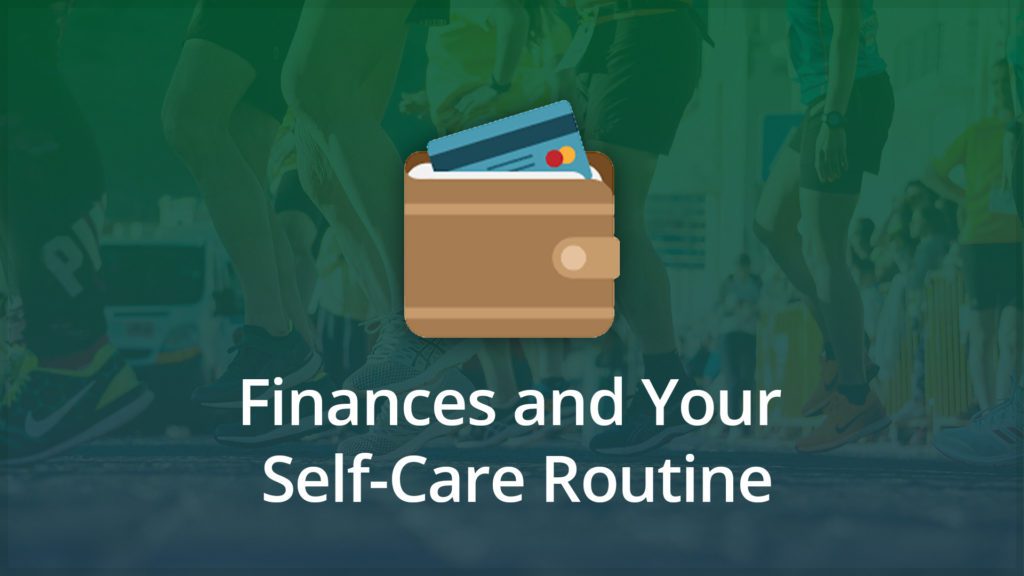
Financial worry has long been a common form of stress and anxiety. Like any other source of stress, it can affect your mental, physical and emotional well-being. A popular form of stress management is the practice of “self-care.”
Self-care is defined as any intentional activity chosen to improve one’s mental, physical and emotional health. Improving your financial health and peace of mind should be no exception to any self-care strategy.
Read on for a few financial habits you can add to your self-care routine today to create greater balance within your financial picture.
Get acquainted with your account transactions
Do you know where your money is going each month?
While you may be aware of your fixed monthly expenses, many people neglect to account for random, miscellaneous or “spur of the moment” expenditures. A good rule of thumb is to always account for discretionary funds and be mindful of emotional shopping (i.e. a habit of picking up extra items during weekly Target runs).
Track your dining out patterns. Maybe you spend more eating out than on groceries.
How many subscription services do you have? Which ones do you use vs. which ones do you really need?
Review your banking and credit card transaction statements regularly as an accountability tool or use online spending tracking software, to keep a visual of where your money is going. As you become more mindful of your cash inflows and outflows, you’ll begin to ease some of the anxiety surrounding your spending.
Budget for your needs and your wants
When used properly, a budget can be a powerful tool to instill greater confidence around what you can actually afford and help you to maintain a level of spending you feel comfortable with. Keeping that in mind, building a strict budget may not afford you the opportunity to do the things you want because you are mainly focused on ensuring you can take care of your needs first. Prioritizing your expenses is important, but who says that you can’t cover your obligations and treat yourself within that same budget?
Using what you have learned regarding your spending habits, you can identify areas where you can trim back on or even reallocate to the items on your “want” list. Budgets don’t have to take all the fun out of life and are great way to stay on top of your finances. Implementing a budget allows you to say “no” to certain things so you can say “yes” to others.
Build and maintain a consistent emergency fund
How many times have you heard “save for a rainy day?” Yet too often we find ourselves unprepared on the day it “rains”. Keeping an emergency fund will prepare you for your next unexpected expense. It is recommended to have three to six months of non-discretionary expenses saved.
Emergency funds are not usually built in a short term so start with saving a percentage of your income monthly. This habit of consistent saving will help you build your emergency fund in no time. Another way to build your emergency fund is to regularly transfer remaining balances from your checking or bill pay account into your savings account. If you have other sources of income (i.e. tax refund, bonus or overtime check), designating a portion to funding this goal can help as well.
Don’t neglect your long-term financial goals
What about planning for the future? The busy, day-to-day routine of life can cause us to neglect our long-term goals. Think about what you want the future to look like to include: starting or expanding a family, buying a home and how you’d like to retire (it’s never too early or too late to plan for retirement). Write your goals down and put them in a place where you can see them.
By taking the time to get a vision for those goals today, you will feel more empowered to talk about them and eventually execute a plan to make them happen. Whether it’s making additional adjustments to your spending habits, reducing your existing financial obligations or enlisting the help of a financial professional, you can learn more of what you can do today to achieve the stress and anxiety-free financial life you deserve.
Speak to a financial advisor today
Ready to remove even more of the financial stress from your life? Speaking with a financial advisor about your goals can help you better manage your finances and your stress levels relating to them.
Contact us today to learn more about how our financial advisors can help you achieve your goals.

